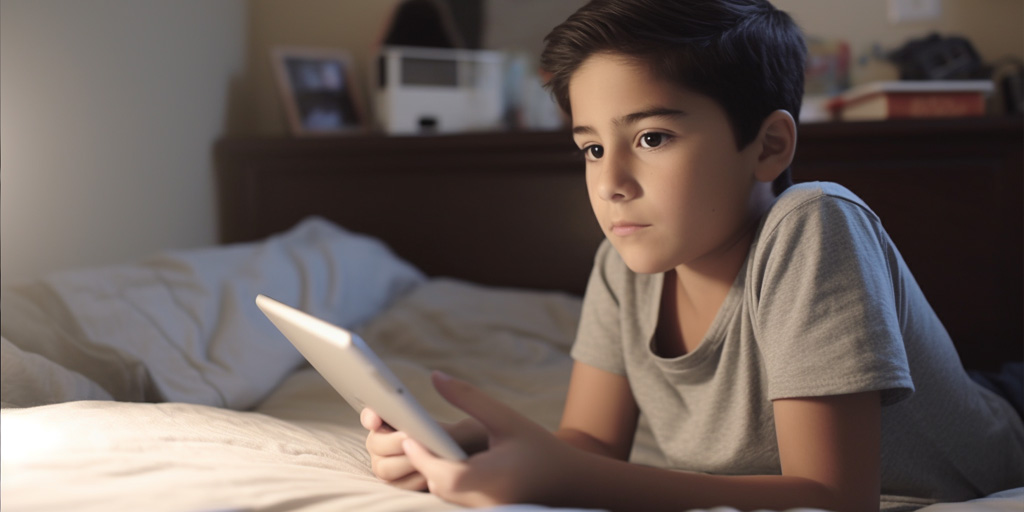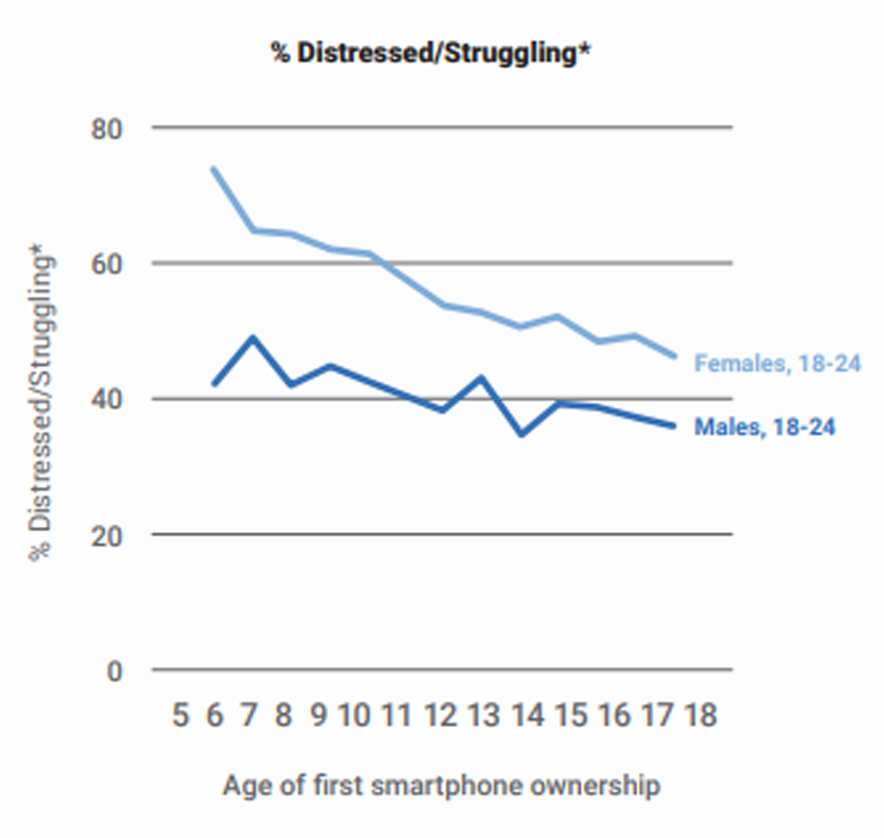
The BrightCanary Breakdown series distills research about kids, the internet, and social media into essential takeaways.
What are the long-term mental health consequences of giving children a phone or tablet? Research foundation Sapien Labs has issued a new 26-page report summarizing their findings from a global study of over 27,000 young adults. Here’s what the researchers found.
Sapien Labs is a nonprofit research group conducting a worldwide mental health study with close to a million participants. Their goal is understanding how the rapidly changing social and technological environment is changing human brains and minds.
Their key research effort, the Global Mind Project, monitors mental health worldwide by asking detailed questions about mental health, personal details, and different cultural, technological, and lifestyle aspects. They've published several reports on global mental health conditions based on their findings.
Starting in January, they added a question asking adults ages 18 to 24 a new question: "How old were you when you first got your own smartphone or tablet that you could take with you anywhere?"
There's a clear trend showing that each younger generation's mental health has been getting worse globally, starting between 2010 and 2014. One major change that occurred alongside this trend is the rise of smartphones, which give users round-the-clock internet access and have transformed the way people think and socialize.
The current group of 18- to 24-year-olds, who were born after 1998 and are part of Generation Z, are the first to have grown up with this technology during their teenage years. This question was added to determine if there was a relationship between technology use and mental health.
When researchers compared the age of getting the first smartphone with the responses to a wide range of mental health questions, they sawa clear trend: the younger a person was when they got their first smartphone or tablet, the more mental health issues they report now. This pattern holds true across all the regions surveyed, and the link is even stronger for women.
Mental wellbeing consistently improved with older age of first ownership of a smartphone or tablet, with a steeper change in females compared to males. The percentage of females experiencing mental health challenges decreased from 74% for those who received their first smartphone at age 6, to 46% for those who received it at age 18. For males, the percentage declined from 42% at age 6 to 36% at age 18.”

The older a child started using a smartphone or tablet, the less they experienced suicidal thoughts and aggression towards others, and the stronger their sense of self.
The study isn’t designed to answer this question, but the report speculates that time spent online detracts from time spent learning crucial social skills needed as an adult.
Social behavior is complicated. It's about understanding the subtle hints in people's faces, body movements, voices, touch, and even smells to figure out what they mean, connect with them, and earn their trust. It's like playing a team sport — you have to learn how to do it. You need lots of real-world practice to get good at it and to build the relationships that make you feel like you belong and help you deal with life's challenges. You can’t do that online.
On average, the younger one gets a smartphone in childhood, the larger percentage of one’s developing life is spent in a virtual world. Given the statistics of 5 to 8 hours a day spent online during childhood, we estimate that this could displace as much as 1,000 to 2,000 hours a year that would otherwise be spent in various face-to-face social interactions, learning and mastering these important skills and building strong relationships."

The study doesn’t explore this, and it isn’t yet understood. Other studies have noted differences between boys and girls when it comes to mental health and how they use digital media. For example, boys tend to play more video games, while girls use social media more. These differences could also be linked to how boys and girls interact with others, and biology might play a role, too. This area needs more research.
It's not possible to run a definitive experiment that directly links smartphone or tablet use to certain outcomes, because it wouldn't be ethical to force kids to use these devices in a certain way just for a study. Also, these kinds of studies would need to run for a long time to see the full effects, and the internet and technology are changing so quickly that it's hard to keep up.
There are many studies examining the impact of various facets of social media and smartphone usage on children and teens, but this is one of the few to look specifically at how age of use impacts mental health outcomes.
It’s also one of the few to include tablets, not just phones. This is important because while there has been public debate for several years around the appropriate age to give a child a smartphone, there has been much less discussion around kids and tablets. Many parents are introducing tablets to children as young as four years old, without awareness or consideration of the potential negative effects.
Much more research still needs to be done in this area. This study doesn’t examine the impact of parental involvement or whether limiting screen time or social media usage mitigates future negative mental health outcomes. It seems logical that creating boundaries for your kids will help to some degree.
But it is clear that the longer you can delay starting your kids on tablets or smartphones, the better. And when they do receive their first device, use a monitoring service like BrightCanary to keep tabs on their online activity — you'll get alerts if they run into anything concerning, so you can talk about it together.